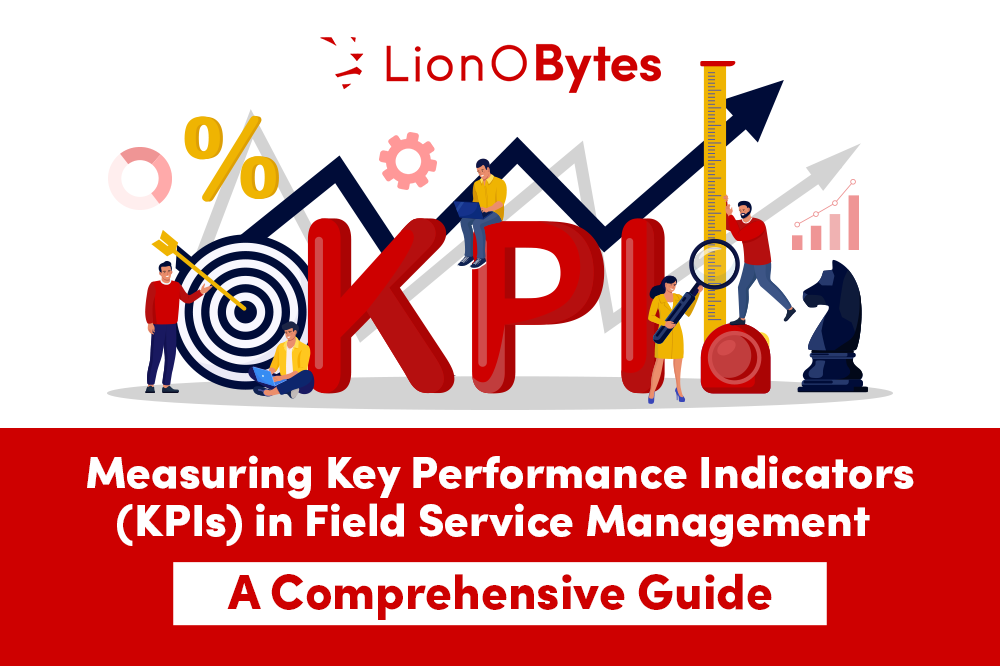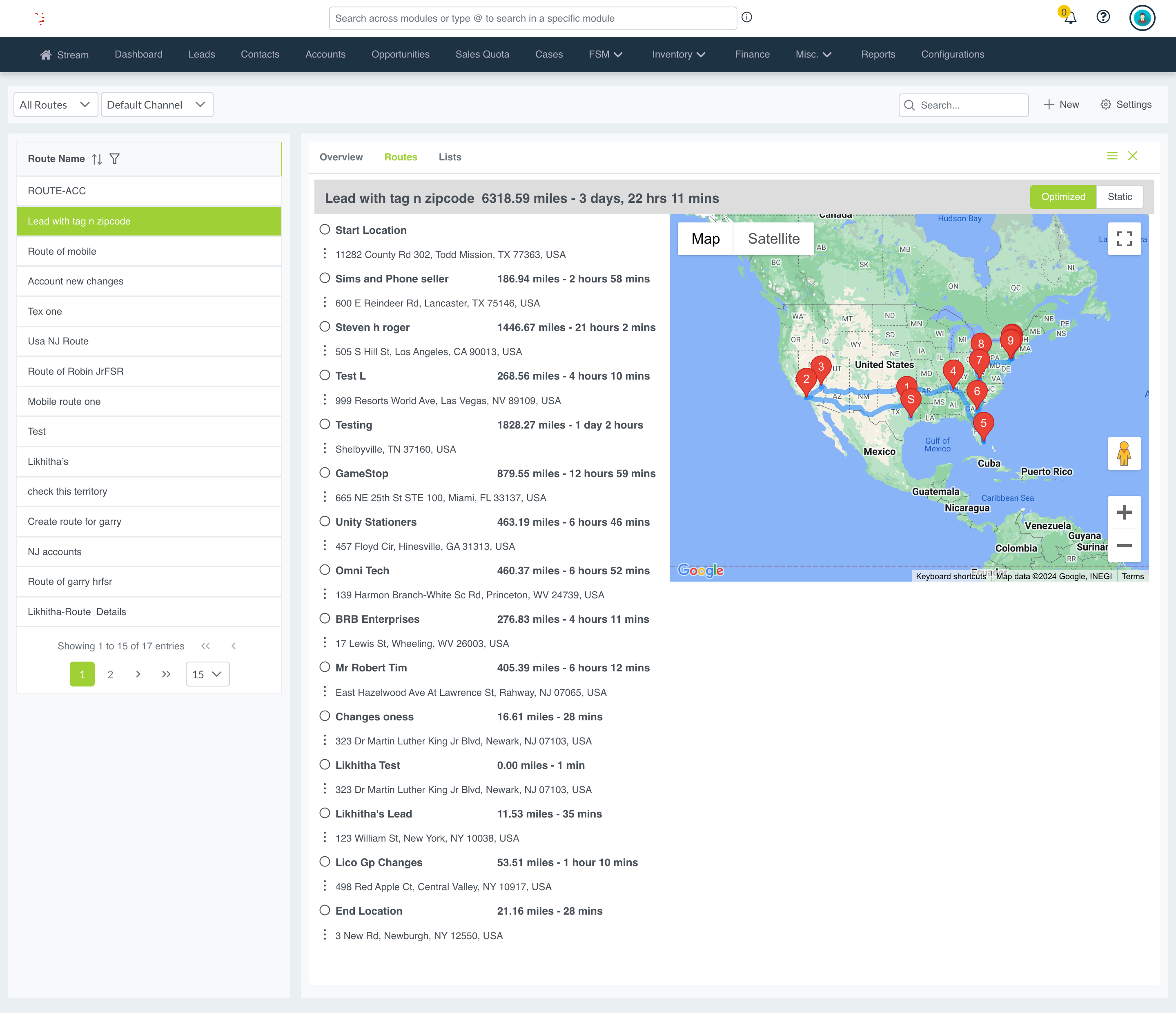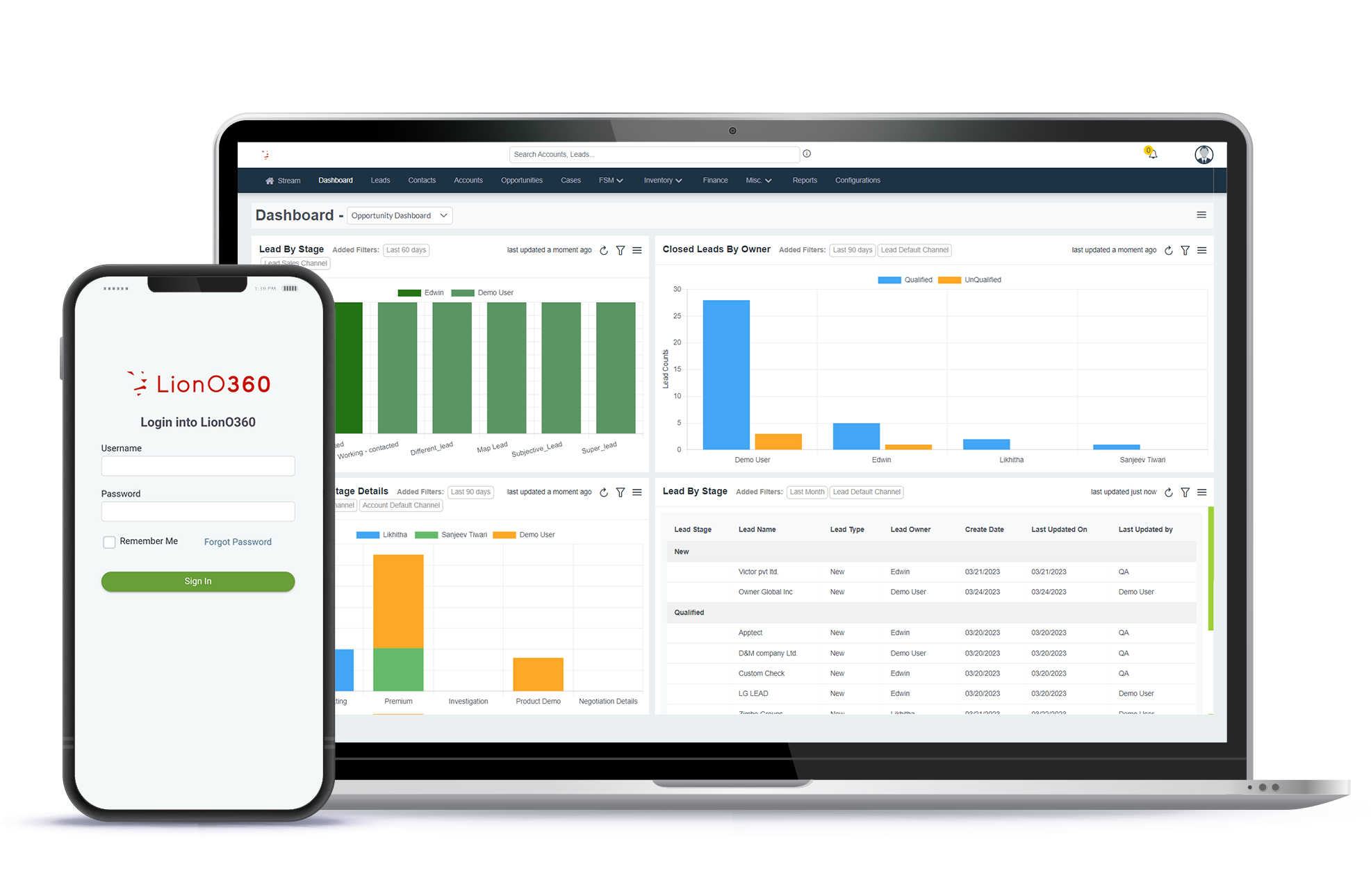
Poor visibility in your Field Service business performance can lead to operational inefficiencies and customer dissatisfaction. To prevent such, it is inevitable to measure Key Performance Indicators (KPIs) in your field operations.
These field service KPIs can help you measure and monitor your field service activities, field representatives' performance, and customer experience. All you need to do is:
- Identify what KPI measurement will work best for your business.
- How to track and monitor your KPIs?
- What action should take place to improve your field operational performance?
Thus, to answer the above-stated questions, it becomes crucial to understand what Field Service Management Metrics are, how these metrics can help you measure Field Service Management KPIs, what are common FSM KPIs, and more.
However, choosing the right FSM system to effectively manage and carry out your field operations is a fundamental need in your business. Yes, the right system equipped with measuring KPIs capabilities can help you overcome your business challenges, increase efficiency, and reduce costs.
So, continue reading this blog to acquire a complete overview of measuring FSM Key performance indicators. Before coming up with FSM KPIs, let’s define field service metrics first.
What are Field Service Metrics?
Field Service Metrics are a measurement of field activities performed by your field representatives to acquire, serve, or support customers while in the field. These metrics help identify Key Performance Indicators which in turn provide insights and actionable data into various aspects of your field service management activities.
These actionable insights can help you level up your field workforce capability, enhance customer experience, and uplift the overall operational efficiency.
Using the LionO360 Field Service Management platform, you can effectively acquire Field Service Metrics to reinforce informed decision-making, maximize efficiency, and reduce the costs associated with field service, field travel, etc.
What are Field Service Key Performance Indicators?
Key Performance Indicators (KPIs) reveal whether your field Service operations are being performed well or not. Usually, all the KPIs fall under the three FSM KPIs include Service Efficiency, Customer Satisfaction, and Business Performance.
Here, ‘Service Efficiency’ includes average job completion time, repeated visits, work order completion, and repair time. So, the purpose of this KPI category is to reduce process time in the field and increase efficiency.
The next KPI category i.e. ‘Customer Satisfaction’ reveals overall customer experience or satisfaction level. For instance, how satisfied your customers were before becoming your customer, while serving them, and after enjoying your service. This KPI category also includes customer retention rate as well as whether they will refer your service to others.
As the name suggests, ‘Business Performance’ KPI exhibits associated costs, growth, and revenue. Thus, it can be said that these KPIs help decision-makers in your organization to make cost-cutting, revenue-generating, and growth-hacking decisions.
Now, the question is how KPIs and metrics work and are leveraged. So, KPIs and metrics are used to measure the field service team’s performance, how better is being served to the customers, and how efficiently your business is performing.
All you need to define metrics, and this requires understanding your business goals, growing business needs, and how your resources are contributing to these business goals. Here, it is crucial to consider new metrics for newly included processes as the existing ones may not work for new process inclusions in your business.
Thus, the above-stated are the three Field Service Management KPI categories and most of the FSM KPIs fall under these FSM KPI categories. So, let’s understand the most common Field Service Management Key performance indicators along with metrics.
Common Field Service KPIs
Average Job Completion Time
This is one of the most common and crucial Field Service Management metrics whereby you can measure the average time taken by the field executive to complete a particular field activity. Usually, Sales or Field Managers leverage this KPI to track and measure their field workforce’s performance along with efficiency and productivity.
Average Response Time
Average response time is calculated based on the time it takes to respond to your customers' service calls or issues. Somehow, this KPI is directly related to customer satisfaction as your customer expects a quick response against their raised ticket or customer service call.
With LionO360 FSM, you can empower your workforce to quickly respond to your customers’ issues or raised tickets. This can help improve your customer experience and acquire their loyalty.
Mean Time to Repair (MTTR)
Meant Time to Repair is an inevitable KPI that demonstrates the average time taken while repairing or resolving the issue. This KPI usually involves inventory, warehouse, shipping, and sales departments. Using MTTR metrics, you can access the efficiency of repairing or resolving processes. Further, this data can reveal a way to improve your customer experience level.
Number of repeat visits
The number of repeat visits reveals that somehow you are downgrading your customer experience as modern customers expect quick and effective resolution. So, this is again the important FSM KPI that demonstrates the metric related to operational efficiency and your customer satisfaction rates.
Average Travel Time and Distance
The next essential Field Service KPI is average travel time and distance which indirectly involves the cost factor as well. These metrics are leveraged by field sales managers to measure employee performance in terms of average travel time taken for a particular distance.
Thus, using these metrics, you can track the time and distance taken by your field technician or representative to improve it further.

With LionO360 Field Service Management Features, you can track the time and distance traveled by your field representatives. Helping you strategize and optimize routes for improved efficiency and reduced costs.
Field Technician Utilization
This key performance indicator demonstrates the average time spent actively by your field representatives in productive activities. Thus, you will have more clarity on your field representative’s performance in terms of time spent individually on various field tasks.
So, this FSM metric can help you understand where there is a need to work to improve or increase field technician utilization.
Customer Satisfaction Score (CSAT)
When we include KPI – Customer Satisfaction Score, it is all about how well your field executives are serving your customers in the field. This CSAT KPI is calculated based on a field survey or questionnaire filled in by the customers. Using the CSAT metric, you can diagnose how well your field team is serving and meeting your customer anticipations.
Customer Retention Rate
The customer retention rate is directly related to repeat business and customer satisfaction. Thus, the customer retention rate KPI is used to understand the average customer retention in your organization. Using these metrics, you can strategize further to retain the customers who are more likely to leave your services.
Customer Acquisition Cost
By knowing the average customer acquisition costs, you can strategize further how to reduce this cost and introduce other ways in your business that drive efficiency. So, this customer acquisition cost KPI is crucial indeed. These metrics can provide insights into average spending while onboarding new customers and potential ways to minimize customer acquisition costs.
SLA Compliance Rate
The SLA Compliance Rate KPI reveals how well your organization is meeting the service level that is mentioned in the contract signed with the customer. Thus, this metric can suggest potential ways to improve service efficiency, maximize customer satisfaction, and boost overall business performance.
How can LionO360 Help You in Measuring KPIs in Field Service Management?
LionOByte’s FSM solution is designed with primary key features such as Territory Management, Route Management, Check-in/Check-out Management, and Questionnaire Management. Our LionO360 Field Service Management Software can help you effectively track and manage your field activities such as questionnaire response, representative field visit status, distance and time traveled by the representative, etc.
To understand how LionO360 Field Service Management can help you improve your field service capabilities and measure key performance indicators, let’s get connected.












